
Wandering Minds
Different Forms of Underground Art
Restrictions on Underground Music Bands
By: Dina Sabry
Two college seniors, Ezz and Mohab, stroll daily through Egyptian streets to create and perform a different kind of music. Unlike many people their age who may find entertainment in cafes, Ezz and Mohab find theirs in a rented basement in Heliopolis along with their instruments.
Ezz and Mohab are just one of many young people who play underground music. Underground Music, is a non-commercial music genre, which often expresses feelings and thoughts of younger generations.
The concept of underground music has been around for, nearly a decade but has tremendously grown over the past couple of years. It roots back to the 1990s when metal music made a debute. Back then, metal music was considered “Satanist”. But ever since, underground music has changed and developed to house different kinds of music.
Wust El Balad is the first known underground band in Egypt. The band was formed in 1999 and became popular after releasing a song titled “Antika” or Antique. In 2003, Cairokee, a now famous underground band that is highly recognized in the Middle East region, emerged to the music scene along with a number other bands.
During 2011 revolution, which ousted former Egyptian President Hosni Mubarak, underground musicians gained widespread recognition as they expressed the political views and feelings of the youth. Underground music became an integral aspect in the revolution during sit-ins in Tahrir Square.
Underground music tackles various topics, not just political: the infamous Masar Egbari band sing about love in Mersal le Habibti or “message to my love”. They also sing about work struggles in Hela Hela or “work hard”.
Through online media exposure, many of the underground bands were able to later perform on stage and in weddings. Many were even hired to perform or act television commercials for corporations such as Coca Cola and Mobinil.
Khayal band hopes to become famous one day but they fear to pay a hefty price. The band was formed in 2013 when Ezz Tarek and his brother, who also play the guitar, joined forces with singer Mohab El Sherbiny.
Singer Hania Mahmoud, Ramy Hamdy (bassist) and Ziad Nabil (drummer) joined the group to form the band. They named the group Khayal or Imagination in reference to the imagination trapped inside each member that is portrayed during their songs.
Financial Struggles
Despite their popularity, many underground bands face restrictions when it comes to producing music. Restrictions on underground musicians range from low funding to government-imposed censorship.
Many bands, like Khayal, are self-funded. They get neither sponsorship nor monetary aid.
In fact, many bands have no financial resources to produce and record their music. Nevertheless, the majority refuses to be funded by private companies fearing possible restrictions on their music.
Ezz says that music producers do not want to invest
in underground music because it is not profitable. “The hardships we face as an underground band is that we pay our own expenses and finance our projects,” stated Ezz “[Music] producers prefer famous known artists and singers because of sure revenue.”
Venues are also another problem for underground bands. Many bands are denied venues over restrictions on the lyrics, which are often political. And so, it becomes hard for bands to find places to perform.
Renting studios to practice and record music adds a financial burden to the bands. Underground musicians, especially startups such as Ezz and Mohab, usually cannot afford to own their studios either in order to record music or to practice.
Shady Ahmed, who has been playing music for the past twelve years, says that bands “are not allowed to perform for about a year maybe” if they do something profound or controversial on stage. Shady added, “The moment that someone does something different it becomes perceived as insulting”; referring to the behavior of band members on stage.
Despite the restrictions and hardships that these bands face, many choose to continue in to producing music with the limited resources they have. Ezz explained that underground music is about expressing and sharing feelings and emotions through music.
That is why he loves to just take his guitar, head to the street, and start playing and singing. “What an underground band would love to do is to take their music down to the streets, garden or under their house or in front of a store.” Ezz said. As for Shady, he said that in a “perfect world” people can say and do whatever they want but that is not the case here.
Political Challenges
During the 2011 uprising, bands like Cairokee and Masar Egbary among others became popular as more people shared their music on social media. However, the government was not pleased and thus put some of these bands under government radar, observing the lyrics and messages in the songs. Police went as far as detaining musicians because of what their songs implied.
Mohab recited the story of the famous underground musician Ramy Essam. Ramy gained popularity during the 18 days uprising through his song Leave. The song condemned the regime and clearly demanded the removal of Mubarak; asking him to “leave”. The song’s video got more than 80,000 hits on YouTube. Ramy was soon imprisoned and accused of threatening national security and the ruling regime. Ramy continued to sing against the regime despite what happened until he received a refugee asylum in Sweden in 2014.
Ezz said that songs’ lyrics could be problematic if touch upon certain political issues. . Shady said that he once witnessed police ban an underground band known for revolutionary songs from performing on stage. On that day, the band performed a song titled Sultan, which translates to King in Arabic. “The band was performing this song on the very day Alaa Mubarak [son of former president Mubarak] was getting married and then the lead singer said ‘today the son of the sultan is getting married,’” said Shady. Soon after, the police flooded the venue and stopped the band from playing their music. The band was later banned from performing live for a significant period of time.
Broadcasting media also play a role in restricting Underground Music. Shady explained that a radio station once banned Cairokee’s song “Matloob Zaeem”, or We Want a Leader, over a word which was said to be profane.
Similarly, underground singer Hamza Namira’s license was revoked by the Syndicate of Musical Profession after being accused of supporting the Muslim Brotherhood and speaking against the ruling military in one of his songs. Although there was no direct political message in his songs, Namira was considered to be a threat to the Egyptian society by the syndicate and a promoter of the reconciliation with the Muslim Brotherhood, an idea that was completely refuted by the Egyptian media and political elite.
Khayal band is not registered in the syndicate. Ezz claims that band members who are registered with the syndicate could be harmed if they went on stage and sang provocative songs. Shady confirmed Ezz’s views, saying that the syndicate stated hinders freedom of expression rather than encourages it.
The syndicate also requires hefty membership fees, which are often overrated. Shady claims that syndicate managers are corrupt and hungry for money. Shady recited a story about a band that was once preforming before him in a concert. He said, “The dude came up and said that they won’t be able to finish the show [until they pay]”. I have no respect for them,” Shady said.
Despite the challenges they face, underground musicians continue to produce and perform their music; even sometimes reaching far more people than commercial music do. But they are yet to profit from their music. So far, all they hope for is to just get their message across. “I think what makes the music more beautiful is when you just sing in the streets. Sadly that is prohibited here in Egypt.” states Ezz.

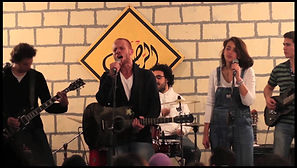
This is an Interview conducted with Undergroun musician Shady Ahmed. Shady introduces some restrictions through various experiences he's been through.
Khayal Band - Underground music band.
Shady Ahmed - Underground Musician.
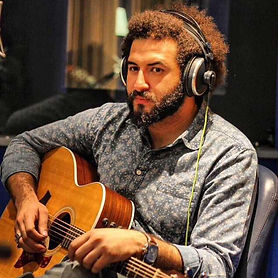
This interview is conducted with two member from the Khayal band, Ezz and Mohab. They talk about difficulties and restrictions on Underground bands.
Shady Ahmed's Arabic song, "Twenty Something".
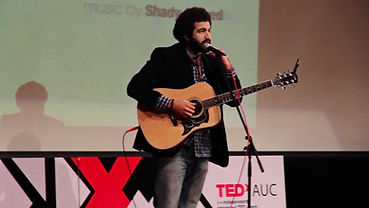
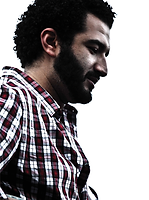
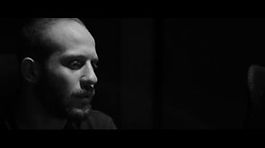
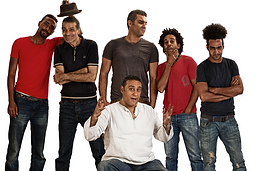
Wust El Balad Band
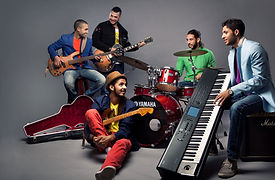
Cairokee Band
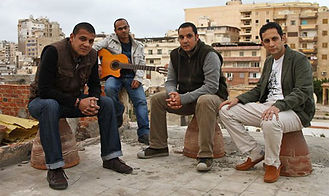
Masar Egbari Band

